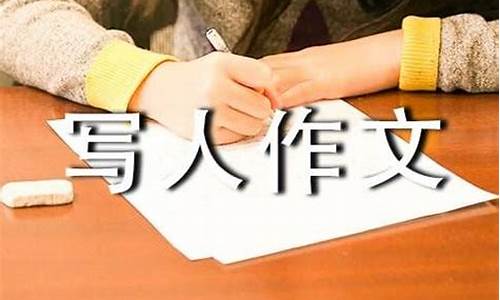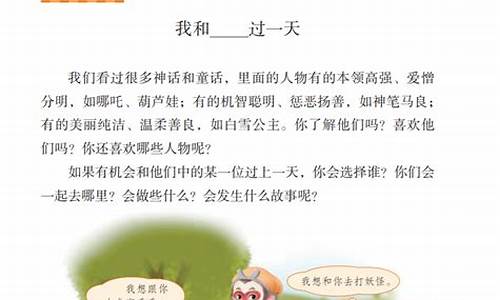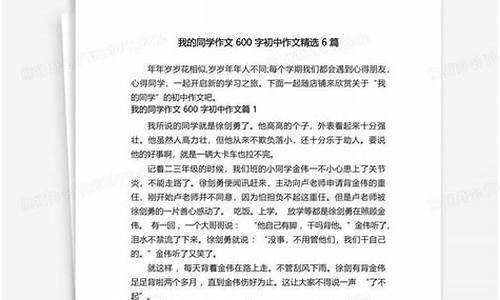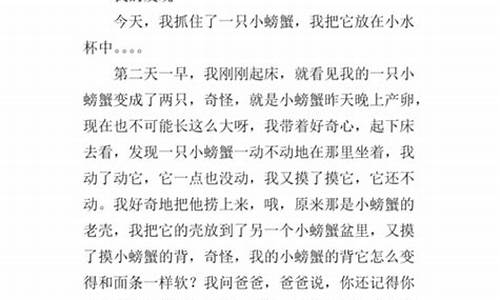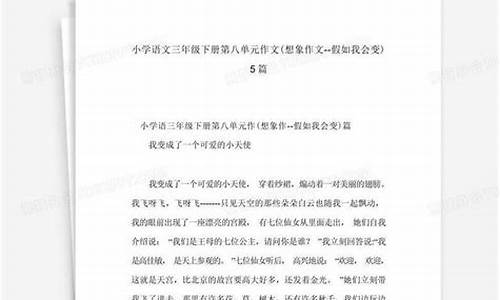一般过去时练习_一般过去时态专项训练
1.英语时态练习
2.语法英语初二的
3.一般过去时和现在完成时区别
4.中考英语动态:初中英语语法总结 动词的时态
5.现在进行时、一般过去时、一般现在时练习题
6.急需一般将来时一般过去时过去进行时现在完成时的语法,相关词语的搭配,句型,练习题等,追加七十分了的
7.数词语法填空题5道加答案,情态动词、一般现在时、现在进行时、一般过去时、一般将来时,练习题各五道

run:一般过去时 i run to kiss her yesterday .
正在进行时的陈述句 she is running with a smile on her face.
否定句 he doesn't like to run to school.
一般疑问句以及回答: Do you run every day? ----Yes, i do.
一般现在时的陈述句: he likes to run .
wash:一般过去时 i washed my socks yesterday .
正在进行时的陈述句 she is washing her skirt .
否定句 he doesn't wash his stuff.
一般疑问句以及回答: Do you wash your feet every day? ----Yes, i do.
一般现在时的陈述句: he likes to wash in the morning .
clothes.一般过去时 i threw all my clothes just now .
正在进行时的陈述句 she is trying all her clothes on now.
否定句 he doesn't like this cothes..
一般疑问句以及回答: Do you wash your clothes every day? ----Yes, i do.
一般现在时的陈述句: his clothes is so old.
希望对你有帮助!.
英语时态练习
1、一般过去时
概念:过去某个时间里发生的动作或状态;过去习惯性、经常性的动作、行为;
时间状语:ago, yesterday, the day before yesterday, last week,last(year, night, month…), 具体时间, just now, at the age of , one day, long ago, once upon a time(很久以前), etc.
基本结构:be动词;行为动词的过去式
例句:She often came to help us in those days.
I didn't know you were so busy.
一般过去时表示
(1)过去某个特定时间发生,也可以表示(2)过去习惯性的动作。一般过去时不强调动作对现在的影响,只说明过去。
句式:主语+过去动词+其他
现在完成时:
概念:
补充过去发生并且已经完成的动作对现在造成影响或后果基本结构:
过去某一时间开始并一直持续到现在的动作或状态
基本结构:主语+he/has+过去分词(done)
用法:(1)现在完成时用来表示现在之前已发生过或完成的动作或状态,但其结果却和现在有联系,也就是说,动作或状态发生在过去但它的影响现在还存在.
I he spent all of my money.(含义是:现在我没有钱花了.)
Jane has laid the table.(含义是:现在桌子已经摆好了.)
Michael has been ill.(含义是:现在仍然很虚弱)
He has returned from abroad. (含义是:现在已在此地)
(2)现在完成时可以用来表示发生在过去某一时刻的,持续到现在的动作(用行为动词表示)或状态(be动词表示)常与for(+时间段),since(+时间点或过去时的句子)连用.
①for+时段
②since+过去一个时间点(译为:自从……以来)
③since+时段+ago
④since+从句(过去时)
●⑤It is+时段+since+从句(过去时)
过去进行时:
概念:表示过去某时正在进行的动作(不强调是否完成)
用法:
1.表示过去某一时间内(正在)进行的动作
如:I was doing my homework at 9 p.m. last Sunday.
2.表示一动作正在进行时,另一动作同时正在进行.
(1)用while连接(while只接doing)(注:如果主句和从句都是一般过去时,可以用while连接两个句子)
例:My mother was cooking while I was doing my homework.(可以持续动作时态一致)
(2)when表示(when可以接doing或did,when后动作时间长,用doing,时间短,用did)
例:I was doing my homework when my mother came in.(间接表达了具体时间)
3.重复的动作
When he worked here, John was always making mistakes.
4.表示过去将要发生的动作
She told us Mr.Lee was arriving here.
5.用于故事,以提供其时间背景
6.表示礼貌
7有时可强调过去某一动作延续时间较长
常用的时间状语:this morning, the whole morning, all day yesterday, from nine to ten last evening, when, while
My brother fell while he was riding his bicycle and hurt himself.
It was raining when they left the station.
这些是我很认真去找的 希望能够帮组到你!
When I got to the top of the mountain, the sun was shining.
语法英语初二的
1. I ____ (write) to you as soon as i get to Shanghai.
-- will write. 用将来时,因为还没有到上海。
等到了上海,我就会给你写信。
2.I'm very glad _____ (hear) that.
-- to hear. be glad to do sth,很高兴做某事。
3.The story ______(hen) long ago.
-- hened. 过去时,故事是很久前发生的。
4.They _______(build) new bridge over the river next year.
-- will build. 将来时,明年将会建桥。
5.The students ______ (clean) their classroom tomorrow.
-- will clean. 将来时,学生们明天打扫教室。
6."What makes you _____ (think ) i'm a farmer?" the Frenchman asked.
-- think. make+动词原形。“是什么使你认为我是个农民?”法国人问道。
7.It's not easy_____(catch) fish with your hands only.
-- to catch. 徒手捉鱼并不简单。
一般过去时和现在完成时区别
一 般 现 在 时
.概念:经常、反复发生的动作或行为及现在的某种状况。
动词用原形(单三人称动词加s / es)
(问句和否定句借用助词do / does)
一 般 过 去 时
概念:过去某个时间里发生的动作或状态;过去习惯性、经常性的动作、行为。
动词用过去式
(问句和否定句借用助词did)
现 在 进 行 时
概念:表示现阶段或说话时正在进行的动作及行为。
am +动词-ing
is +动词-ing
are +动词-ing
过 去 进 行 时
概念:表示过去某段时间或某一时刻正在发生或进行的行为或动作。
was +动词-ing
were +动词-ing
一 般 将 来 时
概念:以过去某个时间为标准,在此以前发生的动作或行为,或在过去某动作之前完成的行为,即“过去的过去”。
(1)will + 动词原形
(2)am +going to+动词原形
Is +going to+动词原形
are +going to+动词原形
过 去 将 来 时
概念:立足于过去某一时刻,从过去看将来,常用于宾语从句中。
(1)would + 动词原形
(2)was +going to+动词原形
were +going to+动词原形
现 在 完 成 时
概念:过去发生或已经完成的动作对现在造成的影响或结果,或从过去已经开始,持续到现在的动作或状态。
he +过去分词
has +过去分词
过 去 完 成 时
概念:以过去某个时间为标准,在此以前发生的动作或行为,或在过去某动作之前完成的行为,即“过去的过去”。
had +过去分词
下面的更具体,还附有练习题,可以联系一下,更好的理解(不过本来有表格的,但是格式不允许,要不你看看参考资料那里的网址吧!O(∩_∩)O)
英语时态一表通
时态是英语学习中一个至关重要的内容,同学们在实际应用中,往往对时态问题倍感棘手,下面我们就初中英语八种时态以列表的形式做一归纳比较。
概念 时间状语 基本结构 一般疑问句 否定形式
一般现在时 经常、反复发生的动作或行为及现在的某种状况。 often, usually, always, sometimes, every day(week, month),once a week, on Mondays, etc. 1.be动词
2.行为动词 1.把动词be放于句首。
2.用助动词do提问,如主语为第三人称单数,则用does,同时还原为动词原形。 1.am/is/are+not
2.此时态的谓语动词若为行为动词,则在其前加don’t;若主语为第三人称单数,则用doesn’t,同时还原行为动词。
现在进行时 表示现阶段或说话时正在进行的动作或状态。 now, at this time, these days, etc. am/ is/ are +doing 把be动词放在句首。 am/ is/ are +not +doing
一般过去时 过去某个时间里发生的动作或状态; 过去 习惯性、经常性的动作、行为。 ago, yesterday, last week(month, year…), in 2000, just now, one day, long long ago, etc. 1. was/
were
2.行为动词过去式 1.把was或 were放于句首。
2.用助动词did提问,同时还原为动词原形。 1.was/were+ not
2. 在行为动词前加do在其前加didn’t,同时还原行为动词。
过去进行时 表示过去某段时间或某一时刻正在发生或进行的动作或行为。 at this time yesterday或以when引导的谓语动词是一般过去时的时间状语等。 was/ were+ doing 把was或were放在句首。 was/ were+ not+ doing
现在完成时 过去发生或已经完成的动作对现在造成的一向或结果,或从过去已经开始,持续到现在的动作或状态。 he/ has +done already, yet, just, ever, never, before, recently,in the past few years, 等,及由for或since引导的时间状语。 把he或has放在句首。 he/ has +not+ done
一般将来时 表示将要发生的动作或存在的状态及打算、或准备做某事。 tomorrow,tomorrow morning/afternoon, the day after tomorrow ,next Sunday/week/year/month, soon, in a few days minutes, etc 1.be going to +do2.will /shall+do 1.be放在句首。2.will/shall提到句首。 1.be going to+not+ do
2.will /shall+not+ do
过去完成时 表示在过去某一时间或动作之前已经发生或完成的动作或情况。表示“过去的过去” by, before等构成的过去时间短语连用或用于when, before, until等引导的从句中。由said, asked, told, thought等引导的宾语从句中, had+ done
had放于句首。 had+ not+ done
过去将来时 表示在过去的某个时候看来将要发生的动作或者存在的状态。 The next day(morning, year), the following month (week),etc. 1.would+do
2.was/ were going to +do 1.would 提到句首。
2.was 或were放于句首。 1.would+not+
do
2.was/were +not+ going to +do
时态专练(以下试题均选自2005年中招试题)
1. -Where is Frank now?
- He _______his bike in the yard.(北京海淀区)
A. fixes up B. fixing up C. is fixing up D. fixed
2. -You’ve left the light on, Tracy.
-Oh, yes. _________ to turn it off right now. (宜昌市)
A. I’d go B. I’ve gone C. I’ll go D. I go
3.“The World Without Thieves” is a very moving film. I ____ it twice already.( 陕西省)
A. will see B. see C. saw D. he seen
4. The Oriental Pearl TV Tower ________ tens of thousands of visitors since l995.(上海市)
A) attracted B) attracts C) has attracted D) will attract
5. -Did you see the traffic accident yesterday?
-Yes. It hened when I past the museum.(苏州市)
A. walk B. am walking C. will Walk D. was walking
6. -He you read this book?
-Yes.I____ it two weeks ago.(随州市)
A.is reading B.he read C.will read D.read
7.- What are you doing ,Jim?
-I _________a beautiful horse.(北京丰台区)
A. draw B. drew C. am drawing D. was drawing
8. They______ all their money, so they he to walk home now. (北京丰台区)
A. he spent B. spend C. spent D. are spending
9. Jim is a student and in Town High School.(武汉市)
A. studies B. studied C. had studied
10.Sandy his old friend Tom when he was crossing the street.(武汉市)
A. had met B. has met C. met
Keys: 1.C 2.C 3.D 4.C 5.D 6.D 7.C 8. A 9.A 10.C
中考英语动态:初中英语语法总结 动词的时态
你所要的已经用私信发送nia
记得接受nia
现在完成时
1. 现在完成时的构成
现在完成时是由助动词he (has)+动词的过去分词构成。助动词说明该谓语是属于现在时范围。它和主语的人称、数要保持一致。过去分词是主要的谓语动词,说明句子的意义。
2. 现在完成时的用法
现在完成时表示过去某时发生的行为对主语目前产生的影响。即用过去发生的某个行为来说明现在的某种情况。
We are good friends.(现在的情况)
I knew him in 19.(过去的动作)
We he known each other since 19.
(现在完成时把过去的动作和现在联系起来并着眼于现在)
(1)表示动作发生在过去某个不确定的时间,但对现在留下了某种影响和结果。常被just、already、yet 等副词修饰。如:
-He you had lunch yet?
-Yes, I he. I've just had it.
你(已经)吃午饭了吗? 我刚刚吃过。(现在我不饿了)
(2)表示从过去某一时刻开始一直持续到现在的动作或状态。这个动作可能刚停止,可能仍然在进行。常带有for和since等表示一段时间的状语。
如:He has taught here since 1981
他自1981年就在这儿教书。(可能还要继续教)
I hen't seen her for four years.
我有四年没见到她了。
(3)表示说话前发生过一次或多次的动作,现在成为一种经验,一般译为汉语“过”,常带有twice,ever,
never,three times等时间状语。
如: I he been to Beijing twice.我去过北京二次。
3.现在完成时的时间状语
(1)现在完成时属于现在时范围,故不能和过去的时间状语连用。如:yesterday,last Sunday,in1990,three years ago等。但是,在强调动作产生的后果和影响时,可以和一些表示不确定的时间状语连用。
a. 用副词already和yet。already一般用于肯定句中,yet一般用于否定句和 疑问句中。
如:We he already finished our homework.我们已完成作业了。
They hen't finished their homework yet.他们还没有完成作业。
b.用ever 和never。多用于否定或疑问句中,表示“曾经”或“从未“等。
如:-He you ever been to the Great Wall? 你曾经去过长城吗?
-I he never been to the Great Wall.我从未去过长城。
c.用表示到说话为止的过去时间状语,如just, before, up to now, the past few years等。
例如:I he seen her before, but I can not remember where.
我以前见过她,但记不起在哪里见过。
He has been there three times the last few days.
近几天他去过那里三次了。
d.用包括“现在”在内的时间状语,如:now, today, this morning (month, year, term)等。
例如:-He you met him today? -No, I hen't.
今天你见过他吗?我 没有。
How many times he you been there this year?
今年你去过那里多少次?
(2)现在完成时可以和带有since或for等表示“一段时间”的状语连用,表示动作或状态从某一时刻开始,一直持续到现在。如:I hen't seen him for two years. 但是,像come,arrive,buy等终止性动词不能与表示“一段时间”的状语连用。要用,必须改为“be(在)”等延续性动词来表述。现归纳总结一下由非延续性动词到延续性动词的转换:
arrive→be here begin(start)→be on
die →be dead come back→be back
lee →be away fall ill(sick,asleep)→be ill(sick,asleep)
get up→be up go out →be out
finish →be over put on →wear 或be on
open →be open join →be in或 be a member of…
close →be closed go to school→be a student
borrow →keep buy →he
catch(a cold)→ he(a cold) get to know →know
begin to study→study come to work→work等
如:He has been a soldier for three years.他参军三年了。
His father has been dead for two years.他父亲去世二年了。
The film has been on for ten minutes.**已开始十分钟了。
We he studied English for three years. 我们(开始)学英语已三年了。
4.几点注意事项
(1)he been(to)与he gone( to)的区别:he been(to)表示“去过某地(现在已经回来了)”,可用于各人称;he gone(to)表示“去某地了(说话时某人不在当地)”,常用于第三人称,前者可与once ,never, several times等连用,后者则不能。如:They he been to Beijing twice.他们去过北京两次。
He has gone to Beijing . 他去北京了。
(2)如单纯表示一段时间,或强调一段时间,虽有since一词,也不必用完成时。
如:It is two years since his father died.
=His father has been dead for two years.他父亲去世已有两年了。
(3)终止性动词现在完成时的否定式,已变成一种可以延续的状态,因此可以和表示一段时间的状语连用。
如:I hen't left here since 19.自从19年以来,我一直没有离开过这儿
(4) 表示行为或状态从过去一直持续到现在时,用现在完成时,要加表示一段时间的时间状语时,常用 for+一段时间, since+时间点。
I he lived here since my childhood.我从小就一直住在这里。
I he lived here for 10 years. 我在这已经住了10年了。
(5) 在提问现在完成时的时间状语时通常用 how long
How long he you lived here?
注意:在表示某一行为状态持续多长时间时,根据终止时间的不同,时态使用是不一样的。如:
I lived here for a week last summer.去年夏天我在这里住了一周。
I he lived here for a week by now. 到现在为止,我已经在这里住了一周。
I will live here for a week next year.明年我会在这里住一周。
现在完成时与一般过去时的区别
现在完成时用来表示之前已发生或完成的动作或状态,其结果的确和现在有联系。动作或状态发生在过去,但它的影响现在还存在;而一般过去时表示过去的事实,不表示和现在的关系。
I he just been to London. I went there last month. 我刚去过伦敦,是上个月去的。
1. 过去时表示过去某时发生的动作或单纯叙述过去的事情,强调动作;现在完成时为过去发生的,强调过去的事情对现在的影响,强调的是影响。
2. 过去时常与具体的时间状语连用,而现在完成时通常与模糊的时间状语连用,或无时间状语。
一般过去时的时间状语:
yesterday, last week,…ago, in1980, in October, just now, 具体的时间状语
共同的时间状语:
this morning, tonight, this April, now, once,before, already, recently,lately
现在完成时的时间状语
for, since, so far, ever, never, just, yet, till / until, up to now, in past years, always,
3.现在完成时可表示持续到现在的动作或状态,动词一般是延续性的,如live, teach, learn, work, study, know.
过去时常用的非持续性动词有come, go, lee, start, die, finish, become, get married等。
举例:
I saw this film yesterday. (强调看的动作发生过了。)
I he seen this film. (强调对现在的影响,**的内容已经知道了)
Why did you get up so early? (强调起床的动作已发生过了。)
Who hasn't handed in his paper? (强调有卷子,可能为不公平竞争。)
She has returned from Paris. 她已从巴黎回来了。
She returned yesterday. 她是昨天回来了。
He has been in the League for three years. (在团内的状态可延续)
He has been a League member for three years.(是团员的状态可持续)
He joined the League three years ago. ( 三年前入团,joined为短暂行为)
句子中如有过去时的时间副词(如 yesterday, last, week, in 1960)时,不能使用现在完成时,要用过去时。
(错)Tom has written a letter to his parents last night.
(对)Tom wrote a letter to his parents last night.
练习题
1. A. 用 already或 yet
1) He they taken down the old pictures ___yet___? No, not ___hen’t_____.
2) Most of us he finished our compositions _____阿拉ready___
3) He said he hadn’t visited the exhibition _____yet___.
B.用 since或 for
1) We he learned five lessons __since____ the beginning of this term.
2) Mrs Liao has been in hospital ___since___last week.
3) I he stayed at my aunt’s _____two weeks.
C. 用he gone或 he been
1) Where are the boy students ? They _____ to the school factory.
2) Is your father in ? No, he ____ to Shenzhen. _______he ever ______ there before ? Yes, he ___ there several times
3) He asked me if I_____ to Hangzhou before.
I told him that I wanted to go there for a visit as I ____ never ____ to that city before.
2. 选择填空
1.Mother ____me a new coat yesterday. I _______ it on. It fits me well.
A. had made…he triedB. made…he tried
C. has made…tried D. made…tried
2 “He ____to draw horses already”. “When ______ he ?” “ Last year "
A. learned…hasB. learned…did C. has learned…has D. has learned…did
3.Tom _____up into the tree. Look, he ____ high up there !
A. has got…isB. has climbed…was C. got …was D. climbed…is
4.____ you _____ the text yet ? Yes, we ____ it two hours ago.
A. Did…copy…did B. He…copied…he
C. He…copied…didD. Did …copy…had
5. “Why ______ she _______ angry ?” “Because he _____ at her just now .”
A. did…get…shouted B. has…got…shouted
C. did…get…has shouted D. has…got…has shouted
6. ______you __________ the film before ? Where _____ you ____ it ?
A. He …seen…did…see B. Did …see…did…watch
C. He…seen…he…seen D. Did …see…he…seen
7.You ____ me waiting for two hours. I ____ for you since five.
A. kept…waited B. he kept…waited
C. kept…he waited D. he kept…he waited
8.Where ______ John _______ ? To the library. He _________ there for an hour.
A. has…been…has gone B. has…gone…has been
C. did…go…went D. did…be…went
9.______ the baby still _____ ? No, it _______ crying.
A. Has…cried…has stopped B. Is…crying…stopped
C. Did …cry…stopped D. Is…crying…has stopped
10. I _______ the way. I ________ here for quite many years.
A. knew…he lived C. knew…live C. know…he livedD. know…live
11. _____ you ever _____ America ? Yes, I he.
A. He…gone to B. He…gone inC. He…been toD. He …been in
12. My brother ____college for over three years.
A. has gone to B. has been to C. has been in D. has been at
13.He ________ the Army by the end of 1989. He ______ in the army since then.
A. joined…is B. has joined…has been
C. had joined…is D. had joined …has been
14. By the time I _____ back they ____ up ten satellites.
A. came…he sent B. came…had sent C. come…he sent D. had come…sent
15. Jack ____ over five lessons by seven o’clock. Then he ____ a rest.
A. went…took B. went…had taken C. had gone…tookD. had gone…had taken
16. We ____ out by that time that he ____ a spy for a long time.
A. had found…had been B. had found…was C. found…had been D. found…was
17. Before the news ____ him, he ____ to know about it.
A. reaches…has got B. reached…had got C. reached…gotD. had reached…got
18. I _____ him a second letter before I ____ from him.
A. wrote…heard B. wrote…had heard
C. had written…heard D. he written…hear
19. People ____ that the soldiers _____ fighting.
A. say…had stopped B. said…has stopped
C. say…stopped D. said…had stopped
20. We ____ in a good harvest because we ____ enough rain.
A. didn’t get…had had B. got…had had
C. had got…had had D. got…hadn’t had
1.A. 1) already, yet 2) already 3) yet
B. 1) since 2) since 3) since
C. 1) he been 2) has gone, Has, been, has been 3) he been, he been
2. BDACA ADBDC CDDBC ABCDB
现在进行时、一般过去时、一般现在时练习题
( 动词的时态)
11.1 一般现在时的用法 1) 经常性或习惯性的动作,常与表示频度的时间状语连用。时间状语: every?, sometimes, at?, on
Sunday。例如:
I lee home for school at 7 every morning. 每天早上我七点离开家。
2) 客观真理,客观存在,科学事实。例如:
The earth moves around the sun. 地球绕太阳转动。
Shanghai lies in the east of China. 上海位于中国东部。
3) 表示格言或警句。例如:
Pride goes before a fall. 骄者必败。
注意:此用法如果出现在宾语从句中,即使主句是过去时,从句谓语也要用一般现在时。
例:Columbus proved that the earth is round. 哥伦布证实了地球是圆的。
4) 现在时刻的状态、能力、性格、个性。例如:
I don't want so much. 我不要那么多。
Ann writes good English but does not speak well.
安英语写得不错,讲的可不行。
比较:Now I put the sugar in the cup. 把糖放入杯子。
I am doing my homework now. 我正在做功课。
第一句用一般现在时,用于操作演示或指导说明的示范性动作,表示言行的瞬间动作。第二句中的now是进行时
的标志,表示正在进行的动作的客观状况,所以后句用一般现在时。
11.2 一般过去时的用法
1)在确定的过去时间里所发生的动作 或存在的状态。例如:时间状语有:yesterday, last week, an hour
ago, the other day, in 1982等。例如:
Where did you go just now? 刚才你上哪儿去了?
2)表示在过去一段时间内,经常性或习惯性的动作。例如:
When I was a child, I often played football in the street.
我是个孩子的时候,常在马路上踢足球。
Whenever the Browns went during their visit, they were given a
warm welcome.
那时,布朗一家无论什么时候去,都受到热烈欢迎。
3)句型:It is time for sb. to do sth "到?时间了" "该?了"。例如:It is
time for you to go to bed. 你该睡觉了。
It is time that sb. did sth. "时间已迟了" "早该?了" ,例如It is time you
went to bed. 你早该睡觉了。
would (had) rather sb. did sth. 表示'宁愿某人做某事'。例如:I'd rather you
came tomorrow.还是明天来吧。
4) wish, wonder, think, hope
等用过去时,作试探性的询问、请求、建议等,而一般过去时表示的动作或状态都已成为过去,现已不复存在
。例如:I thought
you might he some. 我以为你想要一些。
比较:Christine was an invalid all her life.(含义:她已不在人间。)
Christine has been an invalid all her life.(含义:她现在还活着)
Mrs. Darby lived in Kentucky for seven years.
(含义:达比太太已不再住在肯塔基州。)
Mrs. Darby has lived in Kentucky for seven years.
(含义:现在还住在肯塔基州,有可能指刚离去)
注意: 用过去时表示现在,表示委婉语气。
1)动词want, hope, wonder, think, intend 等。例如:
Did you want anything else? 您还要些什么吗?
I wondered if you could help me. 能不能帮我一下。
2)情态动词 could, would。例如:
Could you lend me your bike? 你的自行车,能借用一些吗?
11.3 used to / be used to
used to + do:"过去常常"表示过去习惯性的动作或状态,但如今已不存在。例如:
Mother used not to be so forgetful. 老妈过去没那么健忘。
Scarf used to take a walk. 斯卡夫过去常常散步。
be used to + doing: 对?已感到习惯,或"习惯于",to是介词,后需加名词或动名词。例如:
He is used to a vegetarian diet.
Scarf is used to taking a walk. 斯卡夫现在已习惯于散步了。
典型例题
---- Your phone number again? I ___ quite catch it.
---- It's 69568442.
A. didn't B. couldn't C. don't D. can't
答案A. 本句虽没有明确的时间状语,但从语意上看出,在听的时候没有听懂这个动作发生在过去,因此应用过
去时。
11.4 一般将来时
1) shall用于第一人称,常被will 所代替。will 在陈述句中用于各人称,在征求意见时常用于第二人称。例
如:
Which paragraph shall I read first? 我先读哪一段呢?
Will you be at home at seven this evening? 今晚七点回家好吗?
2) be going to +不定式,表示将来。
a. 主语的意图,即将做某事。例如:What are you going to do tomorrow? 明天打算作什么呢?
b. ,安排要发生的事。例如:The play is going to be produced next
month。这出戏下月开播。
c. 有迹象要发生的事。例如:Look at the dark clouds, there is going to be a
storm. 看那乌云,快要下雨了。
3) be +不定式表将来,按或正式安排将发生的事。例如:
We are to discuss the report next Saturday.我们下星期六讨论这份报告。
4) be about to +不定式,意为马上做某事。例如:
He is about to lee for Beijing. 他马上要去北京。
注意:be about to do 不能与tomorrow, next week 等表示明确将来时的时间状语连用。
11.5 be going to / will 用于条件句时,be going to表将来,will表意愿。例如:
If you are going to make a journey, you'd better get ready for
it as soon as possible.
Now if you will take off your clothes, we will fit the new
clothes on you in front of the mirror.
11.6 be to和be going to
be to 表示客观安排或受人指示而做某事,be going to 表示主观的打算或。例如:
I am to play football tomorrow afternoon. 明天下午我去踢球。(客观安排)
I'm going to play football tomorrow afternoon.
明天下午我想去踢球。(主观安排)
11.7 一般现在时表将来
1)下列动词come, go, arrive, lee, start, begin,
return的一般现在时可以表示将来,主要用来表示在时间上已确定或安排好的事情。例如:
The train lees at six tomorrow morning. 火车明天上午六点开。
When does the bus star? It stars in ten minutes. 汽车什么时候开?十分钟后。
2)以here, there等开始的倒装句,表示动作正在进行。例如:
Here comes the bus. = The bus is coming. 车来了。
There goes the bell. = The bell is ringing. 铃响了。
3)在时间或条件句中。例如:
When Bill comes (不是will come), ask him to wait for me.
比尔来后,让他等我。
I'll write to you as soon as I arrive there. 我到了那里,就写信给你。
4)在动词hope, take care that, make sure that等的宾语从句中。例如:
I hope they he a nice time next week. 我希望他们下星期玩得开心。
Make sure that the windows are closed before you lee the
room. 离开房间前,务必把窗户关了。
11.8 用现在进行时表示将来
下列动词come, go, arrive, lee, start, begin,
return等现在进行时可以表示将来。例如:
I'm leing tomorrow. 明天我要走了。
Are you staying here till next week? 你会在这儿呆到下周吗?
11.9 现在完成时
现在完成时用来表示之前已发生或完成的动作或状态,其结果的影响现在还存在;也可表示持续到现在的动作
或状态。其构成:he
(has) +过去分词。
11.10 比较一般过去时与现在完成时
1)一般过去时表示过去某时发生的动作或单纯叙述过去的事情,强调动作;现在完成时为过去发生的,强调过
去的事情对现在的影响,强调的是影响。
2)一般过去时常与具体的时间状语连用,而现在完成时通常与模糊的时间状语连用,或无时间状语。
一般过去时的时间状语:yesterday, last week,?ago, in1980, in October, just
now等,皆为具体的时间状语。
现在完成时的时间状语:for, since, so far, ever, never, just, yet,
till/until, up to now, in past years, always等,皆不确定的时间状语。
共同的时间状语:this morning, tonight, this April, now, already,
recently, lately 等。
3)现在完成时可表示持续到现在的动作或状态,动词一般是延续性的,如live, teach, learn, work,
study, know.。
一般过去时常用的非持续性动词有come, go, lee, start, die, finish, become,
get married等。例如:
I saw this film yesterday. (强调看的动作发生过了)
I he seen this film. (强调对现在的影响,**的内容已经知道了)
Why did you get up so early? (强调起床的动作已发生过了)
Who hasn't handed in his paper? (强调有卷子未交,疑为不公平竞争)
He has been in the League for three years. (在团内的状态可延续)
He has been a League member for three years. (是团员的状态可持续)
句子中如有过去时的时间副词(如yesterday, last, week, in
1960)时,不能使用现在完成时,要用过去时。
(错)Tom has written a letter to his parents last night.
(对)Tom wrote a letter to his parents last night.
11.11 用于现在完成时的句型
1)It is the first / second time.... that?结构中的从句部分,用现在完成时。例如:
It is the first time that I he visited the city.
这是我第一次访问这城市。
This is the first time (that) I've heard him sing. 这是我第一次听他唱歌。
注意:It was the third time that the boy had been late.
2)This is +形容词最高级+that?结构,that 从句要用现在完成时。例如:
This is the best film that I've (ever) seen. 这是我看过的最好的**。
典型例题
(1) ---Do you know our town at all?
---No, this is the first time I ___ here.
A. was B. he been C. came D. am coming
答案B. This is the first time 后面所加从句应为现在完成时,故选B。
(2) ---He you ____ been to our town before?
---No, it's the first time I ___ here.
A. even, come B. even, he come C. ever, come D. ever, he
come
答案D. ever意为曾经或无论何时,反意词为never,此两词常用于完成时。
注意:非延续性动词的否定形式可以与表示延续时间的状语连用。即动作不发生的状态是可以持续的。
(错)I he received his letter for a month.
(对)I hen't received his letter for almost a month.
11.12 比较since和for
Since 用来说明动作起始时间,for用来说明动作延续时间长度。例如:
I he lived here for more than twenty years.我住在这儿二十多年了。
I he lived here since I was born. 我从出生起就住在这儿了。
注意:并非有for 作为时间状语的句子都用现在完成时。
I worked here for more than twenty years. (我现在已不在这里工作。)
I he worked here for many years.(现在我仍在这里工作。)
注意:用句型转换的方法,很容易排除非延续动词在有for/since结构的完成时中的误用。
1)(对) Tom has studied Russian for three years. = Tom began to
study Russian three years ago, and is still studying it now.
2)(错) Harry has got married for six years. = Harry began to
get married six years ago, and is still getting married now.
显然,第二句不对,它应改为 Harry got married six years ago. 或 Harry has
been married for six years.
11.13 since的四种用法
1) since +过去一个时间点(如具体的年、月、日期、钟点、1980, last month, half past
six)。例如:
I he been here since 1989. 1989起,我一直在这儿。
2) since +一段时间+ ago。例如:
I he been here since five months ago. 我在这儿,已经有五个月了。
3) since +从句。例如:
Great changes he taken place since you left. 你走后,变化可大了。
Great changes he taken place since we were here. 我们走后,变化可大了。
4) It is +一段时间+ since从句。例如:
It is two years since I became a postgraduate student.
我考上研究生有两年了。
11.14 延续动词与瞬间动词
1) 用于完成时的区别
延续动词表示经验、经历; 瞬间动词表示行为的结果,不能与表示段的时间状语连用。例如:
He has completed the work. 他已完成了那项工作。 (表结果)
I've known him since then. 我从那时起就认识他了。(表经历)
2) 用于till / until从句的差异
延续动词用于肯定句,表示"做?直到?" 瞬间动词用于否定句,表示"到?,才?"。例如:
He didn't come back until ten o'clock. 他到10 点才回来。
He slept until ten o'clock. 他一直睡到10点。
典型例题
1. You don't need to describe her. I ___ her several times.
A. had met B. he met C. met D. meet
答案B. 首先本题后句强调对现在的影响,我知道她的模样,你不用描述。再次,several
times告知为反复发生的动作,因此用现在完成时。
2. ---I'm sorry to keep you waiting.
---Oh, not at all. I ___ here only a few minutes.
A. he been B. had been C. was D. will be
答案A. 等待的动作由过去开始,持续到现在,应用现在完成时。
11.15 过去完成时
1) 概念:表示过去的过去
----|----------|--------|----> 其构成是had +过去分词构成。
那时以前 那时 现在
2) 用法
a. 在told, said, knew, heard, thought等动词后的宾语从句。例如:
She said (that)she had never been to Paris. 她告诉我她曾去过巴黎。
b. 状语从句
在过去不同时间发生的两个动作中,发生在先,用过去完成时;发生在后,用一般过去时。例如:
When the police arrived, the thieves had run away.
警察到达时,小偷们早就跑了。
c. 表示意向的动词,如hope, wish, expect, think, intend, mean,
suppose等,用过去完成时表示"原本?,未能?"。例如:
We had hoped that you would come, but you didn't.
那时我们希望你能来,但是你没有来。
3) 过去完成时的时间状语before, by, until , when, after, once, as soon
as。例如:
He said that he had learned some English before. 他说过他以前学过一些英语。
By the time he was twelve, Edison had began to make a living
by himself. 到了十二岁那年,爱迪生开始自己谋生。
Tom was disointed that most of the guests had left when he
arrived at the party.
汤姆失望了,因为他到达晚会时,大部分客人已经走了。
典型例题
The students ___ busily when Miss Brown went to get a book she
___ in the office.
A. had written, left B,were writing, has left C. had written,
had left D. were writing, had left
答案D.
"把书忘在办公室"发生在"去取书"这一过去的动作之前,因此"忘了书"这一动作发生在过去的过去,用过去完
成时。句中when表示的是时间的一点,表示在"同学们正忙于?"这一背景下,when所引导的动作发生。因此
前一句应用过去进行时。
注意: had hardly? when 还没等? 就?。例如:
I had hardly opened the door when I he hit me. 我刚打开门,他就打了我。
had no sooner?than 刚? 就?。例如:
He had no sooner bought the car than he sold it.
他刚买了这辆车,转眼又卖了。
11.16 用一般过去时代替过去完成时
1) 两个动作如按顺序发生,又不强调先后,或用then,and,but 等连词时,多用一般过去时。例如:
When she saw the mouse,she screamed. 她看到老鼠,就叫了起来。
My aunt ge me a hat and I lost it. 姑妈给了我一顶帽子,我把它丢了。
2 ) 两个动作相继发生,可用一般过去时;如第一个动作需要若干时间完成,用过去完成时。例如:
When I heard the news, I was very excited.
3) 叙述历史事实,可不用过去完成时,而只用一般过去时。例如:
Our teacher told us that Columbus discovered America in 1492.
11.17 将来完成时
1) 构成will he done
2) 概念
a. 状态完成:表示某事继续到将来某一时为止一直有的状态。例如:
They will he been married for 20 years by then.
到那时他们结婚将有二十年了。
b. 动作完成:表示将来某一时或另一个将来的动作之前,已经完成的动作或获得的经验。例如:
You will he reached Shanghai by this time tomorrow.
明天此时,你已经到达上海了。
11.18 现在进行时
现在进行时的基本用法:
a. 表示现在(指说话人说话时)正在发生的事情。例如:
We are waiting for you. 我们正在等你。
b. 习惯进行:表示长期的或重复性的动作,说话时动作未必正在进行。例如:
Mr. Green is writing another novel.
他在写另一部。(说话时并未在写,只处于写作的状态。)
c. 表示渐变,这样的动词有:get, grow, become, turn, run, go, begin等。例如:
The lees are turning red. 叶子在变红。
It's getting warmer and warmer. 天越来越热了。
d. 与always, constantly, forever
等词连用,表示反复发生的动作或持续存在的状态,往往带有说话人的主观色彩。例如:
You are always changing your mind. 你老是改变主意。
典型例题
My dictionary ___, I he looked for it everywhere but
still___ it.
A. has lost, don't find B. is missing, don't find C. has lost,
hen't found D. is missing, hen't found.
答案D. 前句是一个仍在持续的状态,应用进行时,由于没有找到,其影响仍然存在,应用完成时,瞬间动词用
于否定式时可用于完成时。
11.19 不用进行时的动词
1)表示事实状态的动词,如he, belong, possess, cost, owe, exist, include,
contain, matter, weigh, measure, continue等。例如:I he two
brothers. 我有两兄弟。
This house belongs to my sister. 这房子是我姐的。
2)表示心理状态的动词,如know, realize, think see, believe, suppose,
imagine, agree, recognize, remember, want, need, forget,
prefer, mean, understand, love, hate等。例如:I need your help.
我需要你的帮助。
He loves her very much. 他爱她很深。
3)瞬间动词,如accept, receive, complete, finish, give, allow,
decide, refuse等。例如:
I accept your advice. 我接受你的劝告。
4)系动词,如seem, remain, lie, see, hear, smell, feel, taste, get,
become, turn等。例如:
You seem a little tired. 你看上去有点累。
11.20 过去进行时
1)概念:表示过去某时正在进行的状态或动作。
2)过去进行时的主要用法是描述一件事发生的背景;一个长动作延续的时候,另一个短动作发生。
3) 常用的时间状语有this morning, the whole morning, all day yesterday,
from nine to ten last evening, when, while等。例如:
My brother fell while he was riding his bicycle and hurt
himself. 我兄弟骑车时摔了下来,受了伤。
It was raining when they left the station. 他们离开车站时,正下着雨。
When I got to the top of the mountain, the sun was shining.
我到达山顶时,阳光灿烂。
典型例题
1) Mary ___ a dress when she cut her finger.
A. made B. is making C. was making D. makes
答案C.
割伤手指是已发生的事情,应用过去时。同时,when表时间的同时性,"玛丽在做衣服时"提供事情发生的背景
,因此用过去进行时。
2) As she ___ the newspaper, Granny ___ asleep.
A. read;was falling B. was reading; fell C. was reading; was
falling D. read;fell
答案B.句中的as = when,
while,意为"当?之时"。描述一件事发生的背景时,用过去进行;一个长动作发生的时候,另一个短动作发
生。句意为
"在她看报纸时,奶奶睡着了。"句中的 fell(fall的过去时),是系动词,后跟形容词,如:fall sick。
初中英语名师谈:6原则攻克英语学习难关! 初中英语构词法前缀后缀词汇一览表 语法 掌握到什么程度可以拿中考英语满分? 02-08年中考语法18个高频考点 2009年海淀区中考英语教研重点句型汇总 看09中考短语归纳及练习 提早知道10年中考方向 过来人口述初中英语暑期学习和生活 英语网独家:初中英语易错知识点归类题77个 《初中英语语法总结 动词的时态》由liuxue86我整理急需一般将来时一般过去时过去进行时现在完成时的语法,相关词语的搭配,句型,练习题等,追加七十分了的
英语一般将来时的三要素
[第一要素]一般将来时的概述
一般将来时表示将来某个时间要发生的动作或存在的状态,也可以表示将来经常或反复发生的动作。常常和表示将来的时间状语连用,如:tomorrow,next week,in 2008等。请看表演秀:
Li Lei will visit her grandmother tomorrow morning. 明天上午,李蕾将去看望她奶奶。
[第二要素]常见结构大比拼
1. “be going to+动词原形”结构用来表示按照主观意图打算或按,安排将要做的事,有“打算、就要”的意思。也常用于表示从迹象上表明将要发生的事情,多指个人主观臆断的推测。如:Look at the clouds. It’s going to rain. 看这些云,要下雨了。
2. “shall或will+动词原形”指对将来事物近期或远期的预见,表达个人主观意图以及征求对方意见或表示客气的邀请。在书面语中,shall多用于第一人称;在口语中,will可以用于任何人称。如:I shall/will show my photos to you next Monday. 我下周一给你看我的照片。
[第三要素]句型转换秀
1. “be going to+动词原形”结构的一般疑问句是将be的相应形式前移到句首,即“Are/Is/Am+主语+going to+动词原形+其它?”。其否定句是在be动词的相应形式后加not.如:
(1)They are going to play football this afternoon.(肯定句)
(2)Are they going to play football this afternoon?(一般疑问句)
(3)They are not going to play football this afternoon. (否定句)
2. “shall/will+动词原形”结构的一般疑问句是将shall或will前移到句首,即“Shall/Will+主语+动词原形+其它?”。其否定句是在shall或will后加not.如:
(1)Our teacher will come back very soon. (肯定句)
(2)Will our teacher come back very soon?(一般疑问句)
(3)Our teacher won’t come back very soon. (否定句)
-------------------------------------------------------------------
一般将来时的用法
一般将来时的谓语动词构成
I/ we shall work
he/ she/ it/ you/ they will work
shall用于第一人称,在美语中除了疑问句中的第一人称用“shall”外,其余都用“will”。
will在陈述句中用于各人称,在疑问句中常用于第二人称。
一般将来时的用法(1)
表示将要发生的动作。
Perhaps I shall (will) pay a visit to France this winter.
我可能在今年冬天到法国观光。
We shan't (won’t) be free tomorrow.
我们明天没空。
Will you be at home at seven this evening?
今晚七点你会在家吗?
The agreement will come into force next spring.
协议将在明年春天生效。
常用于此类情况的时间状语有:
1.表示未来的时间状语
tomorrow明天,next year明年,from now on从现在起,in a month一个月之后,in the future将来,等。
2.包含现在的时间状语
today今天,this evening今天晚上,this week这个星期,this month这个月,this year今年,等。
一般将来时的用法(2)
“be going to +不定式”多用于口语中,表示打算、将要发生的事。
What are you going to do tomorrow?
明天你要干什么?
We are going to visit the Summer Palace next week.
下个星期我们要去参观颐和园。
Look at the dark clouds, there is going to be a storm.
看那乌云,暴风雨快来了。
一般将来时的用法(3)
“be +不定式”表示安排或好了的动作。
When are they to hand in their plan?
他们的什么时候交上来?
The queen is to visit Japan next year.
女王将于明年访日。
一般将来时的用法(4)
“be about +不定式”表示即将发生的动作。
He is about to retire.
他即将退休。
The English evening is about to begin.
英语晚会即将开始。
注意:be about to 一般不与时间状语连用。
一般将来时的用法(5)
come,go等动词用“一般现在时”表示按规定、或时间表将要发生的事。
He starts next week.
他下个星期出发。
We lee very soon.
我们很快就离开。
The train starts at 10 o'clock in the morning.
火车将在早上10点开出。
这类用法限于表示"移动"的动词:come来,go去,lee离开,start出发,begin开始,arrive到达,depart离开,stay逗留,等。
一般将来时的用法(6)
come,go等动词在口语中用“现在进行时”表示主语将要作的动作。
They are leing for New York tomorrow.
明天他们将要动身前往纽约。
Is your brother departing soon?
你的兄弟很快就要启程吗?
这类情况常与come来,go去,lee离开,start开始,begin开始,arrive到达,depart离开,stay逗留,等动词连用。所用的动词必须是动作而不是状态,主语必须是人。
come,go等动词的用法比较
come,go等动词用“一般现在时”表示按规定、或时间表将要发生的事。(较为严格,正式;主语可以是人,也可以是交通工具、会议、戏剧或**。) come,go等动词在口语中用“现在进行时”表示主语将要作的动作。(较为宽松,主语必须是人。)
The train lees the station at 11:20.
火车将在11点20分离站。
We are leing for Boston next week.
我们将在下周前往波士顿。
What time does the film begin?
**几点开映?
Is your sister staying here long?
你的姐妹在这儿会逗留很长时间吗?
He starts next week.
他下周出发。
She is departing soon.
她很快就要动身。
will和be going to的选用原则
1. 关于“打算”
原先作好的打算用“be going to”。
“Kate is in hospital.” “Yes, I know. I am going to see her this afternoon.”
“凯特在住院。”“是的,我知道。我下午要去看她。”
说话时即时的打算用“will”。
“Kate is in hospital.” “Oh, really, I didn’t know. I will go and see her at once.”
“凯特在住院。”“哦,是吗?我都不知道呢。我得马上去看她。”
2. 关于“预料”
在有迹象表明的情况下的预料用“be going to”
Look at the clouds. It’s going to rain.
你看天上的云。快下雨了。
My God! We are going to crash.
天哪!我们快撞车了。
在没有迹象表明的情况下进行的猜测用“will,be going to”皆可。
I think the weather will be nice.
I think the weather is going to be nice.
我想天会晴朗。
Do you think the car will start?
Do you think the car is going to start?
你想车能发动起来吗?
当动词表示内心活动时,表示猜测的句子必须用“will”
I think she will like the cake I made for her.
我想她会喜欢我为她做的蛋糕。
常和一般将来时连用的时间状语
表示将要发生的动作。
Perhaps I shall (will) pay a visit to France this winter.
我可能在今年冬天到法国观光。
We shan't (won’t) be free tomorrow.
我们明天没空。
Will you be at home at seven this evening?
今晚七点你会在家吗?
The agreement will come into force next spring.
协议将在明年春天生效。
常用于此类情况的时间状语有:
1.表示未来的时间状语
tomorrow明天,next year明年,from now on从现在起,in a month一个月之后,in the future将来,等。
2.包含现在的时间状语
today今天,this evening今天晚上,this week这个星期,this month这个月,this year今年,等。
求纳为满意回答。
数词语法填空题5道加答案,情态动词、一般现在时、现在进行时、一般过去时、一般将来时,练习题各五道
一、一般现在时:
概念:经常、反复发生的动作或行为及现在的某种状况。
时间状语: always, usually, often, sometimes, every week (day, year, month…), once a week, etc.
基本结构:①be动词;②行为动词
否定形式:①am/is/are+not;②此时态的谓语动词若为行为动词,则在其前加don't,如主语为第三人称单数,则用doesn't,同时还原行为动词。
一般疑问句:①把be动词放于句首;②用助动词do提问,如主语为第三人称单数,则用does,同时,还原行为动词。
二、一般过去时:
概念:过去某个时间里发生的动作或状态;过去习惯性、经常性的动作、行为。
时间状语:ago, yesterday, the day before yesterday, last week(year, night, month…), in 1989, just now, at the age of 5, one day, long long ago, once upon a time, etc.
基本结构:①be动词;②行为动词
否定形式:①was/were+not;②在行为动词前加didn't,同时还原行为动词。
一般疑问句:①was或were放于句首;②用助动词do的过去式did 提问,同时还原行为动词。
三、现在进行时:
概念:表示现阶段或说话时正在进行的动作及行为。
时间状语:now, at this time, these days, etc.
基本结构:am/is/are+doing
否定形式:am/is/are+not+doing.
一般疑问句:把be动词放于句首。
四、过去进行时:
概念:表示过去某段时间或某一时刻正在发生或进行的行为或动作。
时间状语:at this time yesterday, at that time或以when引导的谓语动词是一般过去时的时间状语等。
基本结构:was/were+doing
否定形式:was/were + not + doing.
一般疑问句:把was或were放于句首。
五、现在完成时:
概念:过去发生或已经完成的动作对现在造成的影响或结果,或从过去已经开始,持续到现在的动作或状态。
时间状语:recently, lately, since…for…,in the past few years, etc.
基本结构:he/has + done
否定形式:he/has + not +done.
一般疑问句:he或has。
六、过去完成时:
概念:以过去某个时间为标准,在此以前发生的动作或行为,或在过去某动作之前完成的行为,即“过去的过去”。
时间状语:before, by the end of last year(term, month…),etc.
基本结构:had + done.
否定形式:had + not + done.
一般疑问句:had放于句首。
七、一般将来时:
概念:表示将要发生的动作或存在的状态及打算、或准备做某事。
时间状语:tomorrow, next day(week, month, year…),soon, in a few minutes, by…,the day after tomorrow, etc.
基本结构:①am/is/are/going to + do;②will/shall + do.
否定形式:①was/were + not; ②在行为动词前加didn't,同时还原行为动词。
一般疑问句:①be放于句首;②will/shall提到句首。
八、过去将来时:
概念:立足于过去某一时刻,从过去看将来,常用于宾语从句中。
时间状语:the next day(morning, year…),the following month(week…),etc.
基本结构:①was/were/going to + do;②would/should + do.
否定形式:①was/were/not + going to + do;②would/should + not + do.
一般疑问句:①was或were放于句首;②would/shou
1. Two __died of coldlast winter.
A. hundreds old people B.hundred old people
C. hundreds old peoples D.hundred old peoples
2. He was only in__ at the time.
A. his 20's B.the 20's C. his twenties D. the twenties
3. The two great men wrote those letters in__ .
A.1870's B. 1879s C. the 1870's D. the 1870
4. I wonder if I can ask him__ time.
A. four B. fourth C. the fourth D. a fourth
5. He came out__ in the track events.
A. first B. one C. the first D. the one
6. It was in 1939 that __broke out.
A. World War Second B. the World WarSecondC. Second World War D. World War II
7. You'll he to spend __writing your report here.
A. one day or two days B. one day ortwo C.a day or two D. two days or one
8. He cut the cake__ .
A. in halves B. in half C. into halves D. into half
9. The earth is nearly__ the moon.
A. 50 time the size of B. 50 timesthe size of C. 50 times as size as D. 50 times as that of
10. Either you or the headmaster __the prizes for these gifted students at themeeting.
A. is handing in B. are to hand out C. are handing in D. is to hand out
1.B
2. C 表示"几十"的数字的复数与所有格代词一起来用以表示人的年龄,本句为"二十多岁"。
3.C 定冠词"the"和数的复数形式在一起表示年代。
4.D 序数词前面加不定冠词表示"又一次"(已经四次了)
5.A 这里"first"有人说起副词作用,可以看成表语,也可以看做一种"取得第一名"的习惯用法。
6.D 序数词和名词共同构成的专有名词还可以是thc Second World War的形式。
7.C 只有C项为正确的表达方式,或者也可以写成"one or two days".再如:onehour and a half或one and a half hours.
8.B "in half"表示"分成一样大小的两半"。也可以说"cut…intwo"
9.B 再如twicethe height(depth,width,weight,etc.)of
10.D either…or…连接主语用就近原则。be to hand out the prizes意为"要颁发奖品"。
情态动词练习
1. May I stop my car here?
No, you____. A
A. can't B. mustn't C. needn't D. don't he to
一般现在时练习
1 Jenny ____ in an office. Her parents ____in a hospital. D
A work works B works work C work are working D is working work
现在进行时练习
Mr Zheng _______________ (read) a book now. reading
一般过去时练习
I _______________(he)an exciting party last weekend. had
一般将来时练习
. There __________ a meeting tomorrow afternoon.
A. will be going
to
B. will going to be
C. is going to
be
D. will go to be C
声明:本站所有文章资源内容,如无特殊说明或标注,均为采集网络资源。如若本站内容侵犯了原著者的合法权益,可联系本站删除。






